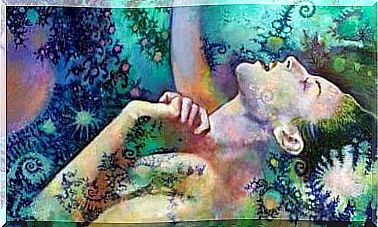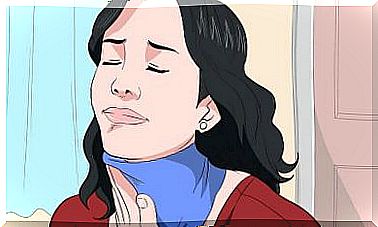Autophobia: The Fear Of Loneliness

There are those who like solitude and those who avoid it. There are people who look for moments of peace and reunion with themselves, but for others this represents real torture: it is autophobia.
For the latter, solitude is a punishment and company, more than a pleasure, ends up becoming a necessity. This disorder is an affliction of our time and leads us to have high levels of anxiety if we are alone.
What comes to your mind when you have a day off on your schedule with no plans, meetings or social activities? Do you consider it an opportunity to rest and devote yourself? Or, on the contrary, panic and start looking for someone to spend time with? Many people feel uncomfortable being alone, but for a small percentage this discomfort reaches pathological levels.
What is autophobia?
The term autophobia means ‘fear of oneself’. However, in this condition, the presence itself is not feared, but the absence of another person. That is, there is an inability to be alone.
It is a disorder categorized as a specific phobia, so its symptoms are specific to this disorder:
- The person feels an intense and irrational fear of being alone or the idea of being alone in the near future.
- The person avoids being alone by all means and, if he cannot, he endures this situation at the expense of enormous discomfort.
- Fear and anxiety are disproportionate. They reach the point of altering the individual’s daily functioning. Thus, your life can be affected socially, personally and at work.
- Symptoms last for at least six months.

How does autophobia manifest itself?
In addition to the aforementioned symptoms, which are typical of autophobia, this is an anxiety disorder and, as such, it manifests itself in several aspects. Thus, the following conditions usually occur:
- On a cognitive level, dysfunctional thoughts associated with loneliness arise . The person may believe that he is in danger and that no one can help him in case of need. You can imagine that you will be attacked, that you will have an accident or that you will die. But there is also a certain component of fear of being ignored or rejected, as this is usually someone with a great need for approval.
- Physiologically, psychosomatic symptoms appear : tachycardia, palpitations, sweating, dizziness and various pains.
- Finally, on a behavioral level, those who suffer from autophobia avoid loneliness and flee from it as much as possible and by any means.
What are the causes of autophobia?
The causes of autophobia are not entirely clear and may vary depending on the specific case. It is common that, at its origin, there are direct past experiences in which the person lived loneliness as a situation of danger. For example, if you’ve suffered damage from having no one around.
It is also common for fear to be triggered by vicarious learning. This occurs after watching others suffer the negative consequences of loneliness.
This is an evil of our time, although it is not present with such intensity. Although we live in an individualistic and competitive society that drives us to independence, we are also immersed in a culture that does not favor the bond with oneself.
We are used to frantic rhythms and overly stimulating environments. New technologies and electronic devices make us always in touch with others or distracted by outside information. Therefore, we are not used to listening, looking or knowing ourselves.
As we are no longer used to being really alone, we may feel uncomfortable when this happens. In the case of autophobia, this discomfort turns into a real fear.

Learning to be alone is essential.
The consequences of autophobia go beyond the discomfort and anxiety it generates in the person. The inability to be alone can lead us to establish unhealthy relationships of emotional dependence. It can also damage our emotional ties due to the excessive need or demand for constant companionship.
The main treatment for autophobia is live exposure. That is, gradually exposing the person to situations that involve being alone and gradually increasing the level of demand.
On the other hand, it is also important to carry out a cognitive restructuring of dysfunctional thoughts to replace them with more adjusted and appropriate ones. Likewise, it may be helpful for the person to learn some self-control technique to regulate anxiety.
In short, being alone is a common everyday circumstance that we must be able to tolerate. But that’s not all: loneliness is a great opportunity to connect with ourselves and thus improve our emotional health. So it’s interesting to enjoy these moments.









